Episodes
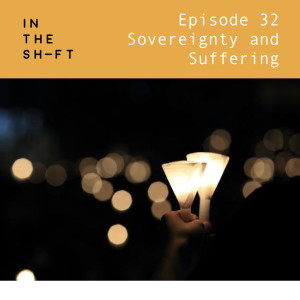
Tuesday Feb 25, 2020
Divine Intervention: Sovereignty and Suffering
Tuesday Feb 25, 2020
Tuesday Feb 25, 2020
Episode 32: In this episode we explore the challenges that arise when we consider the "sovereignty of God". In the Christian tradition God is typically understood as the one who is all powerful (omnipotent) and under whose domain and dominion all things take place. But this gives way to questions of what we do with suffering and pain. If God is in charge then what is going on here? In this episode we unpack three traditional theological responses to the problem of suffering and evil, why they're inadequate, and what questions and alternatives might begin to emerge in response.
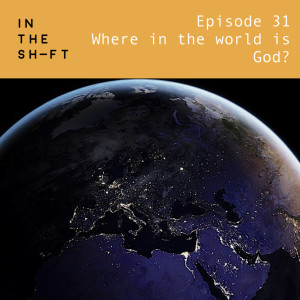
Tuesday Feb 04, 2020
Divine Intervention: Where in the world is God?
Tuesday Feb 04, 2020
Tuesday Feb 04, 2020
Episode 31: We're back with a new series exploring the question of divine intervention! In Christian faith, many people are introduced to the idea of a God who is actively responsive, in 'control' and who answers prayer. But when crisis hits or some kind of disruption to our beliefs takes place we can start to question these assumptions (and with good reason). So what do we do with this and how do we move forward?
Is the idea of God still possible or meaningful, and if so what can authentic and honest spirituality look like? This episode introduces some of the big questions, and briefly unpacks three different frameworks for understanding the God-world relationship: classical theism, panentheism and pantheism, and how they impact the way we think about the possibility of divine intervention.
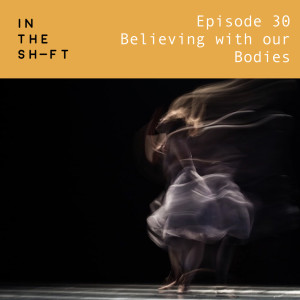
Friday Dec 20, 2019
In the Flesh: Believing with our bodies
Friday Dec 20, 2019
Friday Dec 20, 2019
Episode 30: This is the final episode of the In the Flesh series, and we talk about where and how we store memory, what it means to 'know' something, how our bodies can surprise us about what we believe, and about the intersections between mysticism and revolution.
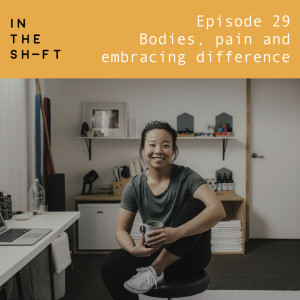
Friday Dec 06, 2019
In the Flesh: Bodies, pain, and embracing difference
Friday Dec 06, 2019
Friday Dec 06, 2019
Episode 29: In this episode I talk with massage therapist Cheri Inoue about her experience growing up as Japanese-Canadian, the challenge of race, identity, Christianity as whiteness, the journey of learning to embrace difference, and how this story intersects with her work as a clinician. It is a wide-ranging conversation that explores working with people's bodies and particularly their pain, approaching both of these with a posture of non-judgement, and how we can discover acceptance for the difference and uniqueness of our own bodies in the midst of a life that demands so much from us.
Cheri has an Auckland-based practice, Well Within: Posture and Movement Care
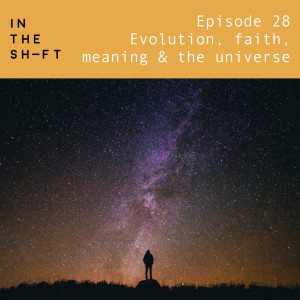
Friday Nov 22, 2019
In the Flesh: Evolution, faith, meaning and the universe
Friday Nov 22, 2019
Friday Nov 22, 2019
Episode 28: This episode explores some of what evolution tells us about what makes human beings distinct, the embodiedness of our existence, the emergence of consciousness and why this might be connected to the universe becoming self-aware. And then we ask what insights and resources faith and spirituality might provide us in navigating this experience of humanness, and what kind of meaningful life this could invite us into.
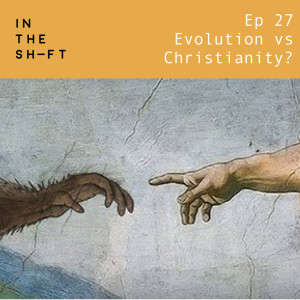
Friday Nov 08, 2019
In the Flesh: Evolution vs Christianity?
Friday Nov 08, 2019
Friday Nov 08, 2019
Episode 27: Are there things in scripture that don’t allow Christians to accept evolutionary theory? In order for Christians to have "faith" do they have to resist the claim that we have a common ancestor with apes? And if not, then what insight does evolutionary theory actually give us into what it means to be human, and how can this help us to understand faith, spirituality and some of our fundamental struggles as human creatures?
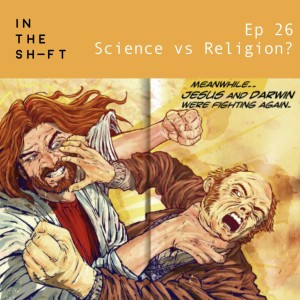
Friday Oct 25, 2019
In the Flesh: Science vs Religion?
Friday Oct 25, 2019
Friday Oct 25, 2019
Episode 26: To understand what it means to be embodied humans, we need to grapple with evolution. But this also means unpacking the apparent conflict between science and religion that often plagues certain streams of Christianity. Many people assume that the claims of science go against the claims of religion, and vice versa. But the reality is, it is only some versions of religion that have a problem with science, and only some scientists who have a problem with religion. The conflict between these two worlds is entirely unnecessary... and a religious or spiritual tradition that means anything to us simply must be open to truth and knowledge wherever it is found. This episode asks why this conflict exists, and suggests some ways of thinking about God and spirituality that can help us to move forward in this conversation.
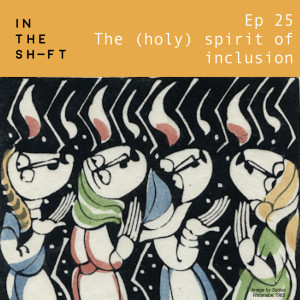
Friday Oct 11, 2019
In the Flesh: The (holy) spirit of inclusion
Friday Oct 11, 2019
Friday Oct 11, 2019
Episode 25: This episode explores a dynamic of spirituality that does more than just overturn exclusion, but moves intentionally toward inclusion. For some of the early Christians, their experience of the divine Spirit served to break down the barriers that excluded people based on ethnicity, gender, social class and even religious identity. This appears to have taken place, not by eliminating diversity, but by the Spirit-led affirmation of multiple identities and therefore the inclusion of diverse peoples. In this context, the activity of the Spirit is not just about individual mystical experiences, but about the disruption of oppressive systems, exclusive in-out groups, and the movement of people toward justice and compassion.
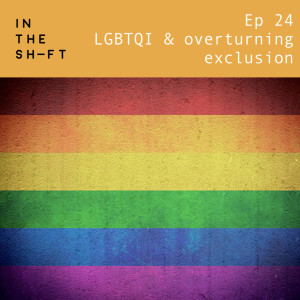
Friday Sep 27, 2019
In the Flesh: LGBTQI & overturning exclusion
Friday Sep 27, 2019
Friday Sep 27, 2019
Episode 24: In this episode I talk through my own personal and theological journey of change. From being surrounded by, inheriting and adopting conservative and exclusionary views toward LGBTQI people, through to a full change of mind and heart, and the embrace of an affirming theology.
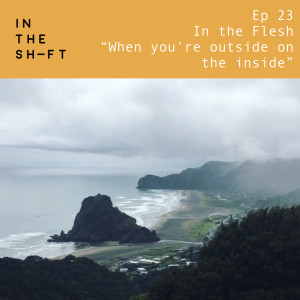
Friday Sep 13, 2019
In the Flesh: "When you're outside on the inside"
Friday Sep 13, 2019
Friday Sep 13, 2019
Episode 23: This episode features a conversation on sexuality, faith and the journey of coming to a kinder understanding of God and self. Ben grew up in a conservative Christian home, but as a young man had to wrestle with an emerging sexuality that didn’t fit the Christian script he’d been given. This is a personal and honest discussion exploring that journey, what it meant for his spirituality, for relationships and community, and whether he could come to terms with both his sexuality and his faith; things that he’d been told didn’t belong together.

